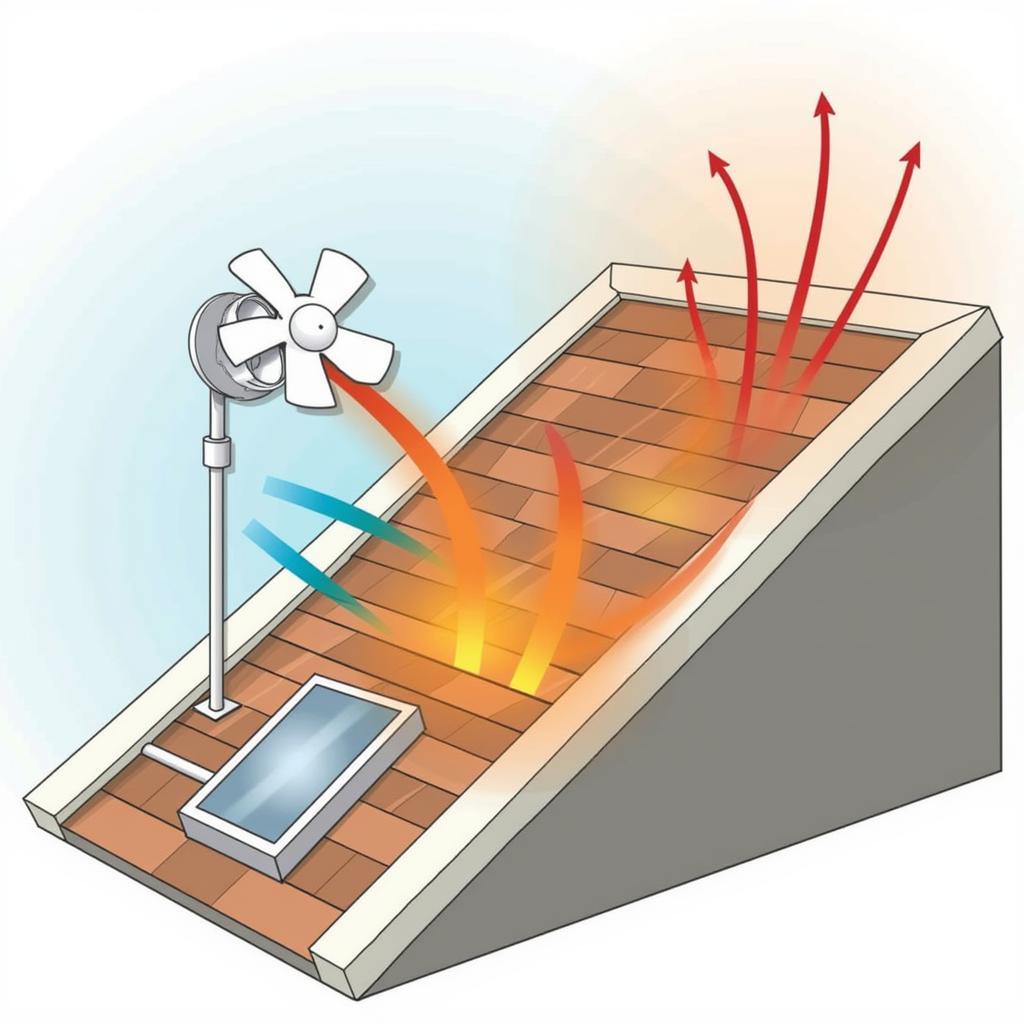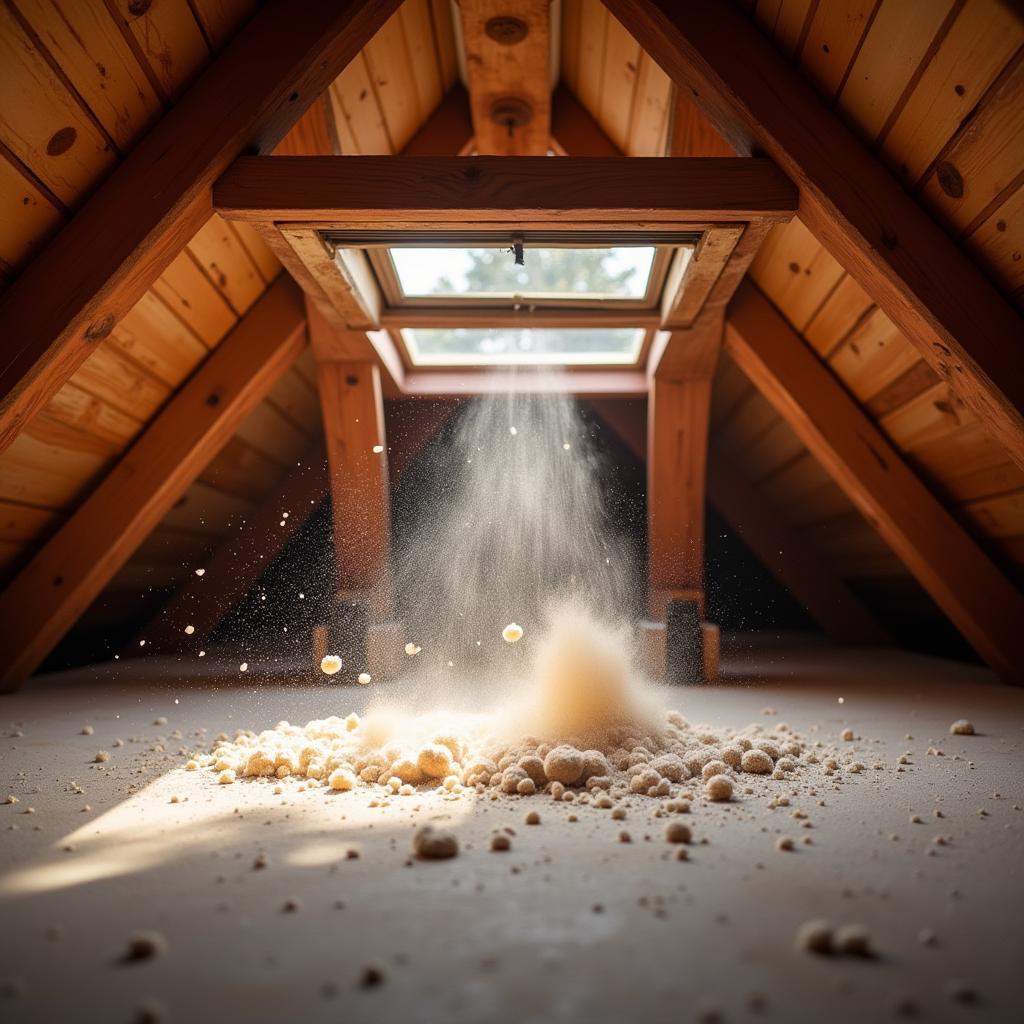Are you considering installing an attic fan to combat summer heat and reduce energy costs? Attic fans can seem like a smart solution, but are they truly effective? In this article, we’ll delve into the pros and cons of attic fans to help you decide if they’re the right choice for your home.
How Do Attic Fans Work?
Attic fans are installed in your attic’s gable vents or through a roof vent. They function by drawing hot air out of your attic, creating negative pressure that pulls cooler air in from outside vents. This ventilation process aims to reduce attic temperatures and, consequently, the amount of heat transferred to the living spaces below.
The Potential Benefits of Attic Fans
Lower Cooling Costs
One of the main arguments in favor of attic fans is their potential to reduce cooling costs. By expelling hot air from your attic, they can lessen the workload on your air conditioner. This can lead to energy savings, especially during the hottest months.
 attic fan cooling down a house
attic fan cooling down a house
Increased Attic Ventilation
Improved attic ventilation is another advantage. Excess heat and moisture buildup in the attic can lead to mold growth, wood rot, and insulation damage. Attic fans help circulate air and reduce moisture, potentially extending the lifespan of your roof and attic structure.
Extended Roof Shingle Life
High attic temperatures can shorten the life of your roof shingles. By keeping the attic cooler, attic fans may help your shingles last longer, potentially delaying costly roof replacements.
The Drawbacks of Attic Fans
While attic fans offer potential benefits, they also come with some drawbacks:
Potential for Backdrafting
One concern is the potential for backdrafting. If your attic fan isn’t properly sized or installed, or if your home isn’t adequately sealed, it can create negative pressure that pulls conditioned air from your living spaces into the attic, actually increasing cooling costs.
Increased Dust and Allergen Intake
Attic fans draw in outdoor air, which inevitably carries dust, pollen, and allergens. If you’re sensitive to these, an attic fan might exacerbate allergies or respiratory issues.
 dust particles entering attic through a vent
dust particles entering attic through a vent
Noise Pollution
Attic fans can be noisy, especially older models. If your attic is located directly above living areas, the noise might be disruptive, especially at night.
Potential for Ice Dams in Winter
In colder climates, improperly vented attic fans can contribute to ice dams forming on your roof. If warm, moist air escapes into the attic during winter, it can melt snow on the roof, leading to ice buildup along the eaves.
Are Attic Fans Right for You?
The effectiveness of attic fans depends on various factors, including your climate, home’s insulation levels, existing ventilation, and proper installation.
Expert Insight:
“It’s crucial to have a professional assess your home’s ventilation needs before installing an attic fan,” says John Smith, a certified energy auditor. “An improperly installed or sized fan can do more harm than good, potentially increasing energy bills and causing other problems.”
Conclusion
Attic fans can be beneficial for some homeowners, offering potential energy savings and improved ventilation. However, they are not a one-size-fits-all solution and come with potential downsides. Carefully weigh the pros and cons, consult with a professional, and consider your specific circumstances before deciding if an attic fan is the right choice for your home.


